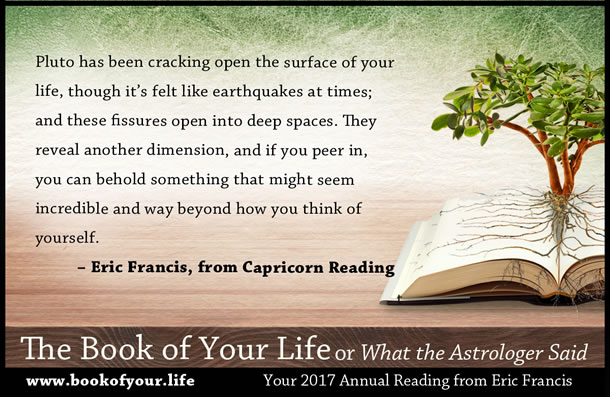“Strange days have found us.”
— Jim Morrison
If you do not yet feel emerged from the period between eclipses that concluded on Sunday, the Moon’s move into Aries last night should help. This does not mean a sense of total normalcy is in the cards. If you simply contemplate the tableau of President Trump making his first address to the U.S. Congress tonight (Fat Tuesday!), it’s unavoidably strange.
Of course, we have all seen strange days before. We have heard of them too. The Doors recorded a song about the experience in 1967, just as Uranus was separating from three Virgo conjunctions with Pluto over the previous two years. Indeed, ever since then, it’s been legitimate to ask whether “normal” was an obsolete term.
Our current astrology could also be interpreted to account for how events in Washington D.C. tonight might seem even weirder than anything you could see during Mardi Gras in New Orleans. As Eric pointed out in his column on Sunday, the eclipses concluding were paradoxically just the beginning. Just hours before the closure of a solar eclipse, exacting Mercury slipped into sensitive Pisces. Hours after, energetic Mars (uncharacteristically moving faster than Venus) came together with revolutionary Uranus in fiery Aries.
As if all that were not enough, the Pisces Sun is even now closing in on its more-or-less annual merger with foggy Neptune.
Yet, there might well be one planet to tie all the strangeness together: Jupiter, currently retrograde in Libra. Consider that Jupiter is the traditional ruler of Pisces and Sagittarius. Implicitly, then, any activity in Pisces (where the Sun, Mercury, Neptune and Chiron are currently gathered) or Sagittarius (where Saturn now is) must inherently be resonating with Jupiter at this time.
In addition, Libra (where Jupiter currently is) opposes all the activity taking place on the other side of the zodiac with Venus, Mars, Uranus and Eris in Aries. Throw in the cardinal-sign relationship between Libra and Capricorn (where Pluto is currently trucking), and every sign-ruling planet is somehow being significantly influenced by Jupiter right now.
Being easily seen by the unaided eye, Jupiter is one of the “classical” planets human beings have always been aware of. For that reason, its being named after the top dog in an influential ancient hierarchy of deities must be taken into account as well.
Among other things, Jupiter (as ruler of the Olympian pantheon) was known for spreading his genes around. According to Hesiod’s Theogony and other sources, at least some of the reputed progeny of Jupiter were rather strange themselves. Eris, to cite just one example, was not exactly a popular choice on guest lists for social occasions.
One astrological corollary for the personified Jupiter’s promiscuity is Robert Hand’s description of it as “a planet of growth and enlargement.” It is therefore significant that Jupiter’s current retrograde is in the process of repeating many of the aspects it has made made since entering Libra on Sept. 9. Perhaps foremost among those iterations is Jupiter’s second opposition to Uranus (in Aries) coming up on Thursday (or Friday, depending on your time zone).
If there were one time prior to 1967 when normalcy might be said to have left the building, 1781 would be a good candidate. The American Revolution had just concluded, the French Revolution was on its way and Uranus was discovered in 1781. Just imagine the old political order and our understanding of the universe all going off the map together in just a few years’ time, and you can readily grasp that our times are not without precedent (or is that “president”?) no matter how strange things may seem.
If anything, Jupiter is now simply enlarging on strange times seen at least a few times before. In order to better comprehend the situation, you might want to look back at what was going on for you the last time Jupiter opposed Uranus — during late August and early September of 2003. It could be that you can gather a clue or two from that time to surmise that is also a period when Jupiter is implicitly supporting your personal growth.
As with some of mythical Jupiter’s children, you may currently be feeling a bit strange (or estranged) yourself. Don’t worry; by all indications you are in very good company. Besides, as we have seen since Jupiter entered Libra in September, what’s strange now can become both mainstream and influential in a very short period of time.
So, when in doubt, make like the revelers in New Orleans. Be a bit strange, and enjoy it while you can before boring Lenten normality sets in. Sure beats being like some members of Congress who must surely wish they could be wearing a Mardi Gras mask tonight.
Offered In Service















